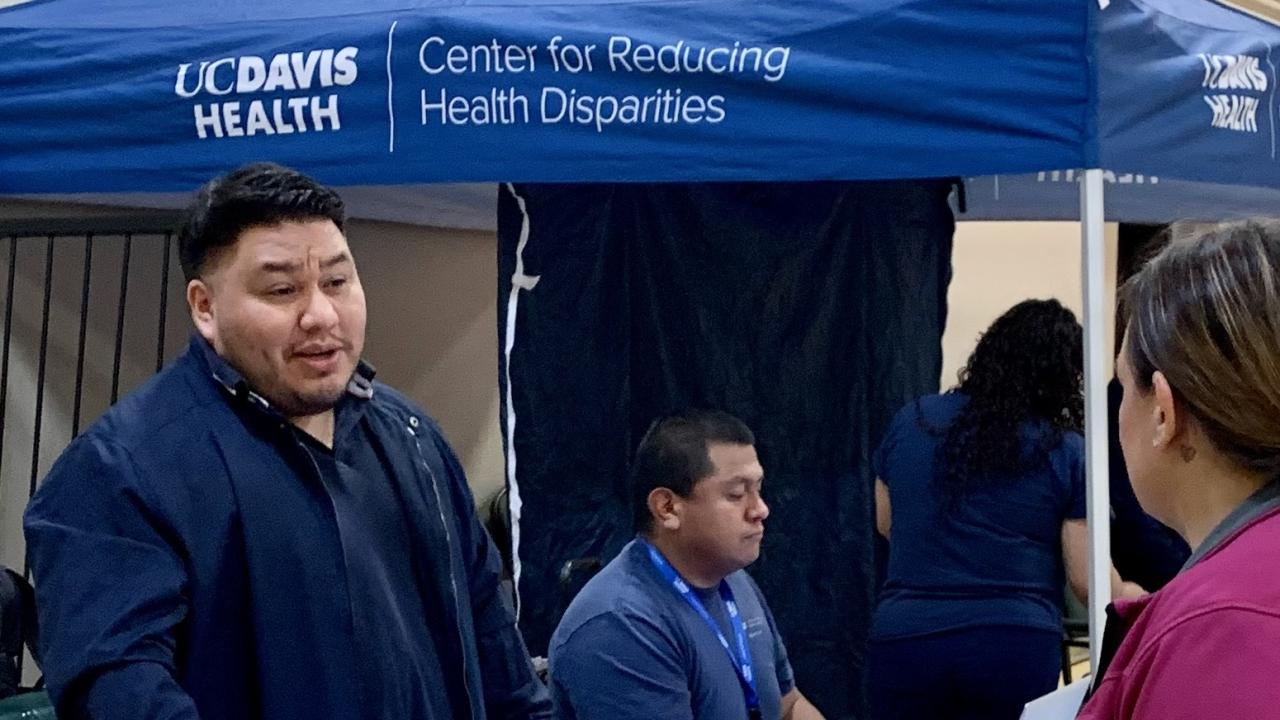
Federally Funded Partnerships Build Lasting Health Preparedness
When the COVID-19 pandemic exposed deep gaps in access to reliable health information and care, researchers and community leaders across the country moved to build better connections. Among the most impactful of these federally funded efforts was the Community Engagement Alliance (CEAL)—a national initiative of the National Institutes of Health (NIH) that united academic researchers and local organizations to strengthen public health in California communities, with a focus on rural residents, people with less access to health networks and under-resourced communities disproportionately impacted with morbidity and mortality by COVID-19.
At UC Davis, the Center for Reducing Health Disparities (CRHD) led one of California’s CEAL projects, partnering with community-based organizations, churches, state and local health departments to build trust, share accurate information and promote access to testing, vaccines and a test-to-treat program. Now, as national funding faces uncertainty, the UC Davis team’s work shows how federally supported research partnerships strengthen not only local communities but the systems and relationships that keep all of us healthier and more prepared for future public health challenges.
Developing Trust through Community Partnerships
The UC Davis CEAL project focused on listening, by partnering with trusted community leaders to understand barriers to access care and communication. Working in both urban and rural regions, researchers collaborated with primarily Spanish and English-speaking organizations, among others. Together, they co-designed materials that addressed community-specific questions and concerns. Every individual wants to make informed health decisions for themselves and their families. By setting up neighborhood pop-up clinics and speaking on multilingual radio programs, the project met people where they were in community settings or where they lived.
The result was stronger public confidence and more effective communication that benefit everyone during a crisis. When multilingual households and rural communities are left behind, entire regions lose their ability to respond quickly and coordinate effectively. The lessons learned through CEAL now inform broader strategies to improve chronic disease prevention, vaccination outreach and emergency preparedness statewide.
Beyond Covid-19: A Model to Improve Health for All
What began as an emergency response has evolved into a model for sustainable collaboration between universities and communities. Through CEAL, UC Davis and its partners established networks that continue to host health education events, provide technical assistance and co-design new initiatives focused on continued strength with partnership, capacity building and long-term wellness. These partnerships are proving critical for addressing chronic conditions, responding to heat and wildfire health risks, and improving access for people with limited connection to traditional health systems. Losing trusted connections and becoming trustworthy built up over years of intentional effort would only slow information-sharing and limit access to timely care.
The project has become a model of how science, communication, and trust can come together for the benefit of all of us. As federal funding fades, it threatens this community-based infrastructure and readiness to address health risks and the next public health crisis.
From Labs to Lives showcases UC Davis researchers whose federally funded work moves beyond the lab to strengthen communities, improve lives, and shape the future. Learn more about the impact of UC Davis research at the From Labs to Lives website.
